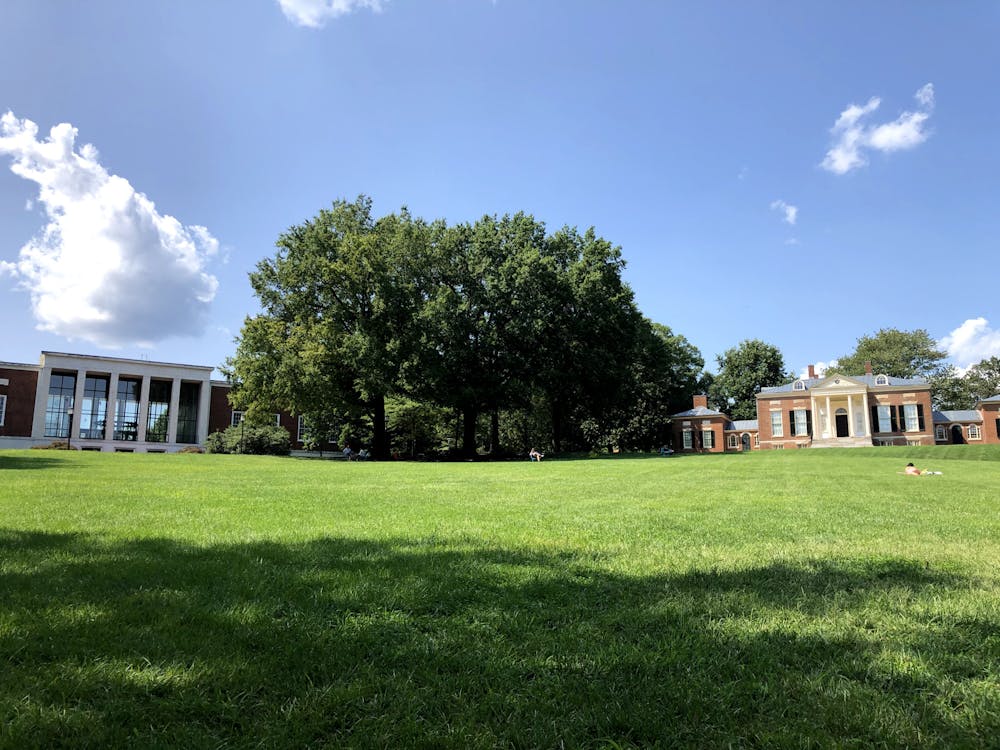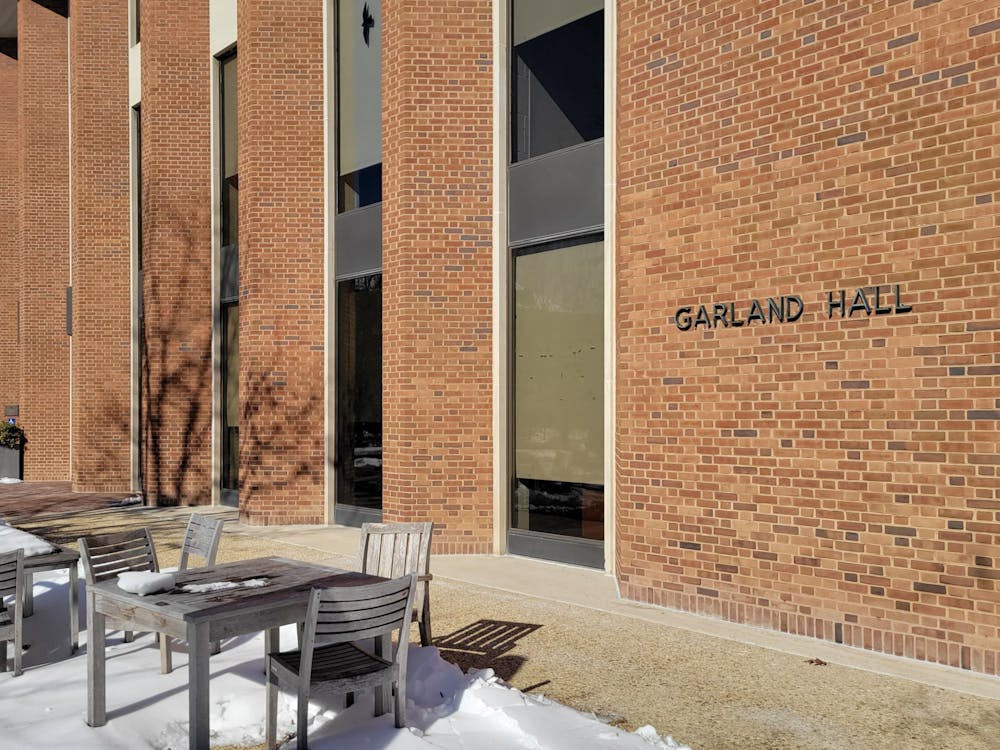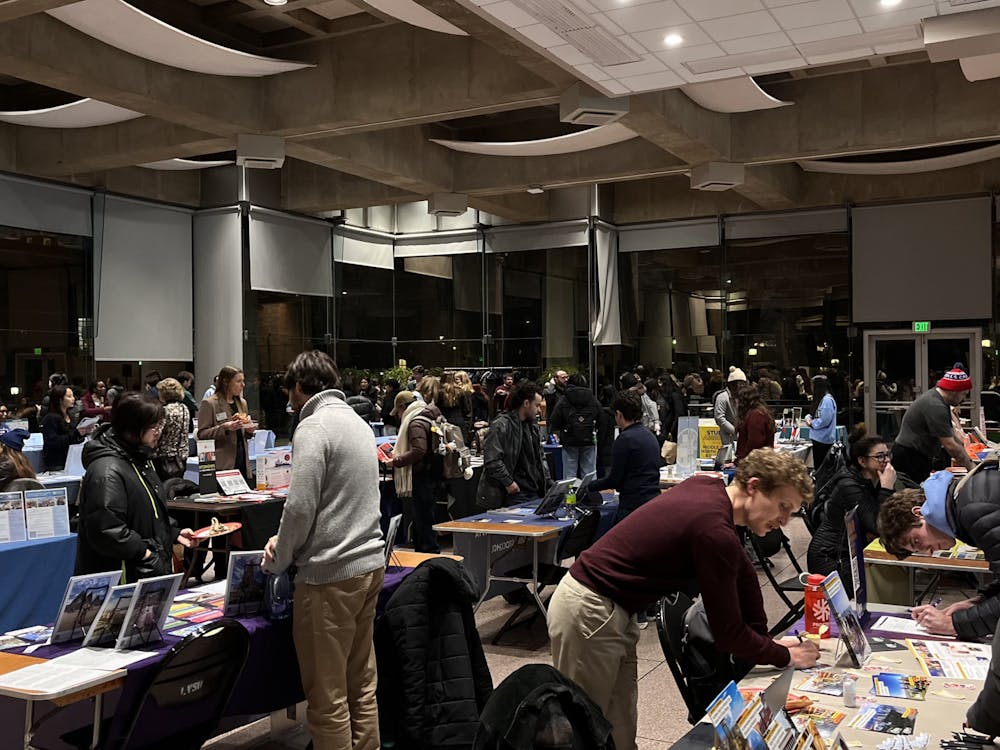In response to all classes being held online due to the coronavirus, the University hosted an entirely virtual first-year orientation experience for the Class of 2024 and transfer students.
In an email to The News-Letter, Assistant Director of Orientation and First-Year Experience Brittany Claridge explained that many aspects of orientation were changed or cut to better suit a remote program.
“We chose to delay those aspects of Orientation connected to the Homewood physical campus and surrounding areas until later this fall, in the hopes that it would align more closely with new students’ anticipated arrivals to campus,” she wrote.
Orientation events were spread out throughout the summer, with the Orientation and First-Year Experience team hosting a series of enhanced academic experience programs, including regular faculty forums and an introduction to the core principles of the Hopkins community.
Claridge stated that the accommodations were made to ensure that all incoming students could adequately participate in orientation programming.
“As often as possible, programs were offered at two varying times to accommodate those students from a variety of time zones. Sessions that occurred within July and August were recorded and made available afterward for those students who could not make the session,” she wrote. “In the rare instance where one [student] was unavailable at the same time as the rest of the group, we usually transitioned them to a group with a meeting time that was more agreeable with their schedule.”
One drastically altered aspect of the orientation experience was the expansion of the First-Year Mentor (FYM) program. FYM members began meeting with their groups of incoming students in late June and continued to meet throughout the entire summer.
Several FYMs expressed support for the University’s decision to start orientation programming earlier than usual.
In an email to The News-Letter Alanna Mogollon-Arabia, who has been a FYM for the past two years, wrote that the extended orientation period had a positive impact.
“This year definitely allowed us to form closer bonds with our groups since we spent so much of our summer together instead of just a few days like before,” she wrote. “Towards the end of the orientation programming, the FYMs would host social nights and combine their groups which gave the incoming freshmen an opportunity to meet people outside of their FYM group, and everyone really enjoyed those.”
FYM Snigdha Panda explained in an email to The News-Letter that by having a summer-long orientation, students are able to feel like they have a community at Hopkins before setting foot on campus.
“Starting our trainings as early as we did and beginning orientation in the summer virtually was really smart, regardless of whether we would be in-person or not, and it’s something I recommend be done in the future,” she wrote.
However, Panda noted that the virtual programming presented unique challenges.
“The hardest thing was forging those connections between my mentees in a virtual setting. It definitely felt much more forced than natural and created a few weeks of awkwardness and discomfort,” she wrote. “I would've held more social meetings outside of the content provided by orientation. Just more opportunities for them to interact and connect rather than have information presented to them.”
The News-Letter spoke with several first-year students that participated in orientation programming and explained that they were frustrated with certain aspects of the programming.
In an email to The News-Letter, freshman Joshua Berenbaum expressed that there was a lack of clarity on attendance.
“I didn’t think the ‘mandatory’ meetings on Guidebook were very well planned out,“ he wrote. “I say ‘mandatory’ because they were marked on the Guidebook app, but there was no explicit reminder that we actually had to go to them or any consequence of not going.”
Freshman Clarissa Alfonso noted in an email to The News-Letter that virtual programming posed challenges that impeded her participation.
“Like any regular summer day, important events or emergencies came up and it was difficult at times to be able to accommodate my schedule to fit the times when we were to meet,” she wrote. “Besides that, technology isn’t perfect, as we know, and it wasn’t uncommon to see my Zoom suddenly stop working or my WiFi slipping up.”
Freshman Rohan Herur expressed his desire for more opportunities to meet students with shared interests.
“I feel like the orientation could’ve included a space where we were randomly grouped with people in our same academic or extracurricular interest, so it would be easier to meet people with common interests,” he wrote in an email to The News-Letter.
However, many incoming students reported that overall, the University did a good job welcoming them, despite not holding any in-person events.
Berenbaum stated that the orientation programming was fulfilling despite being virtual.
“I really appreciated the amount of effort Hopkins put into the online orientation, especially the convocation. I was impressed with how high quality the convocation video/event was, along with the gift boxes sent to us,” he wrote.
Alfonso agreed with Berenbaum, expressing overall satisfaction with her orientation experience.
“I liked the array of information that orientation gave. I appreciate all the academic resources and in-depth detail to the services provided for students given by the First Year Mentors,” she wrote. “At the same time, having meaningful discussion about things like diversity with my peers was refreshing and fun.”
Freshman Taemi Kim stressed her appreciation for her FYM, who helped make the orientation programming and unusual transition into college much smoother.
“Under this inevitable and tragic circumstance, my First Year Mentor did her best to facilitate our transition to Hopkins,” she wrote. “Just knowing there’s a trustworthy and approachable upperclassman to count on made me feel safe and welcomed.”





